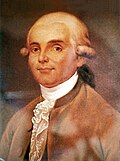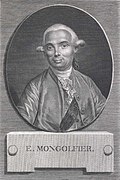Difference between revisions of "AY Honors/Hot Air Balloons/Answer Key"
From Pathfinder Wiki
< AY Honors | Hot Air BalloonsAY Honors/Hot Air Balloons/Answer Key
m (spelling) |
(Link to appropriate wikipedia articles) |
||
| Line 23: | Line 23: | ||
==3. Using a textbook of Chemistry, or a reference book of scientific tables, draw up a simple table showing the composition of air by weight and by volume.== | ==3. Using a textbook of Chemistry, or a reference book of scientific tables, draw up a simple table showing the composition of air by weight and by volume.== | ||
| − | ==4. Draw up a simple table showing a comparison of the atomic number, atomic weight, and density of hydrogen, helium, nitrogen, and oxygen.== | + | ==4. Draw up a simple table showing a comparison of the [[w:Atomic_number|atomic number]], [[w:Atomic_weight|atomic weight]], and [[w:Density|density]] of [[w:Hydrogen|hydrogen]], [[w:Helium|helium]], [[w:Nitrogen|nitrogen]], and [[w:Oxygen|oxygen]].== |
==5. Name two gases that are used in flying gas filled balloons.== | ==5. Name two gases that are used in flying gas filled balloons.== | ||
Revision as of 00:05, 16 October 2008
1. State the role each of the following played in the development of flying baloons.
- b. Jean Francois Pilatre de Rozier and Francois Laurent Marquis d'Arlandes.
- c. Jacques Alexandre Cesar Charles and Nicolas Louis Robert.
- d. Ben L. Abruzzo, Maxie L. Anderson, and Larry Newman
- e. Bertrand Piccard and Brian Jones
2. Cite the principle of Archimedes, and briefly describe how it applies to each of the following:
- Archimedes' Principle states: any body fully or partially submerged in a fluid is buoyed up by a force equal to the weight of the fluid displaced.
- a. A piece of cork floating in a bowl of water.
- b. A ship floating in the ocean
- c. A hot air balloon floating in the atmosphere
3. Using a textbook of Chemistry, or a reference book of scientific tables, draw up a simple table showing the composition of air by weight and by volume.
4. Draw up a simple table showing a comparison of the atomic number, atomic weight, and density of hydrogen, helium, nitrogen, and oxygen.
5. Name two gases that are used in flying gas filled balloons.
6. Explain how heat/temperature affect the density of air, and how this applies to flying hot air balloons.
7. Explain the role of each of the following in the structure and flying of a hot air balloon.
- a. Envelope
- b. Support structure
- c. Throat
- d. Fuel source
8. Name two materials that may be used for the envelope of a hot air balloon, and compare the advantages each cords because of its properties.
9. Describe how flying balloons have served a useful function in
- a. Military campaigns
- b. Scientific research
10. At what time of the day do most sport balloon flights take place? Why?
11. Describe how a pilot controls the vertical movement of
- a. A hot air balloon
- b. A gas filled balloon


